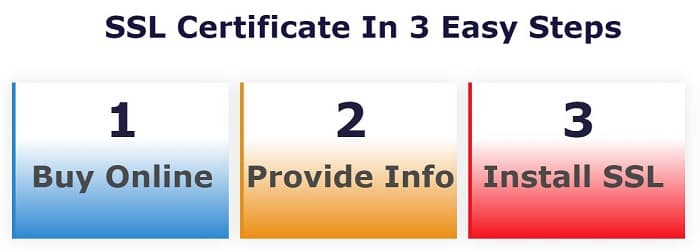What is SSL?
SSL (Secure Sockets Layer) is a standard security technology for establishing an encrypted communication (https) between a web server and a client (typically a web browser) to ensure the integrity and security of data transmission. Hence, it is generally used by millions of websites to protect their online transactions with their customers. SSL can provide a trust guarantee for the website. In order to be able to generate an SSL link, it needs to apply for an SSL certificate issued by a Trusted Certificate Authority (CA) and install it at the web server.
Why use SSL?
Benefits of using SSL:
1) secure website and prevent sensitive information from being intercepted
2) help improving search rankings of search engines such as Google
3) prevent browsers from displaying insecure website warning messages, hence affecting visitors’ browsing intentions and advertising effectiveness
4) build trust of site visitors by showing Trust Logo of the SSL certificate at the website
What kind of SSL certificates do you need?
SSL certificates are also called as digital certificates. According to different validation levels and scopes of protection, they can be classified into:
1) Domain Verification Certificate (DV SSL):
For the DV SSL certificate, the Certificate Authority (CA) only reviews the applicant’s ownership of the domain name, and does not review the relevant information of the company / organization. Hence, it can be issued faster, cheaper in cost, and is great for personal websites and blogs.
2) Organization Verification Certificate (OV SSL):
the OV SSL certificate, the CA will review the applicant’s ownership of the domain name and some of the enterprise / organization information. Hence, it takes longer to issue, higher fees, and is great for corporate / organization websites.
3) Extended Validation Certificate (EV SSL):
For the EV SSL certificate, the CA strictly follows the approved guidelines listed at the CAB (CA / Browser) forum to validate the applicant’s ownership of the domain name and detailed company / organization-related information (including company name, official phone number, physical address) so that it helps to prove that the company behind your website is real. The validation level is the strictest. Hence, the time of application is longer and higher in cost. It is great for online stores, government agencies, and corporate / organizational websites that have high security requirements. EV SSL is the industry’s highest security level. Only the EV SSL certificate can display a unique HTTPS green bar in a web browser to show website visitors that the site is secured and authentic.
4) Wildcard SSL Certificate:
A digital certificate can include all subdomains under a domain name.
5) Multi-Domain SSL Certificate (MDC):
Multi-Domain certificate is also referred to as MDC or SAN. It allows a digital certificate to protect multiple domain names, such as: domain.com, www.domain.com, domain.net and otherdomain.com, etc.
You can choose the SSL certificate according to the needs of your company and the nature of the website. Generally, SSL certificate is issued for a single domain name, such as domain.com and www.domain.com. If you need to protect all subdomains under an eshop, you may consider the EV Wildcard SSL certificate.
Extended Validation (EV SSL) Certificate:

General SSL Certificate:


Purchase SSL Certificate
DV SSL OV SSL EV SSL Multi-Domain SSL Wildcard SSL